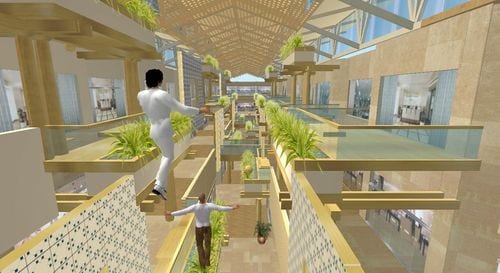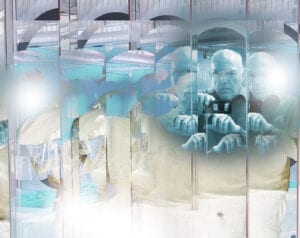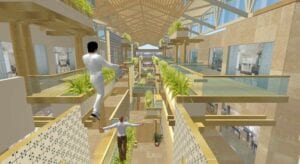Second Life Has a Second Coming as Remote Work Remains the Status Quo

Photo: David Denton on Facebook
Linden Lab’s virtual reality software Second Life is regarded somewhat as a fossil, a relic of the Internet from the mid-2000s. Many a young person will remember the colorful banner ads splashed across websites from their childhood, featuring waxy 3D models promising users a way to escape their boring realities. At its peak, Second Life boasted an a million users and an in-universe GDP of $64 million. The game experienced a decline in popularity in the early 2010s, sinking to an estimated 800,000 regular users in 2017.
However, Second Life may be making a comeback due to the COVID-19 pandemic. In an interview with Lab Gab in March 2020, Linden Lab’s CEO Ebbe Altberg said the software experienced a 60% rise in new registrations as countries began imposing lockdown measures.
People are no longer interested solely in using Second Life as a leisure activity. Educational institutions and corporations are turning to Second Life as a more interactive and personal alternative to Skype and Zoom.
“[The sales team] has been inundated by educators and professionals to figure out if Second Life can be a solution for them,” said Altberg. “We’ve had to reassign some resources to help manage those incoming requests.”

Working within Second Life far predates the pandemic. David Denton, a retired architect, has been using Second Life for over a decade and has built several buildings within the virtual space, primarily for universities. He recognized Second Life’s value as a work tool after noticing how traveling was aggravating his Parkinson’s disease.
“I was working on a shopping center in Cairo, and I’d been flying back and forth between Los Angeles and Cairo,” said Denton in an interview over Zoom. “I was getting exhausted, and it dawned on me one day that we could be doing the project in the virtual world.”
Denton built his vision entirely within the Second Life program and presented it to his client. The client was impressed, although the project never got to leave the virtual space. The Egyptian Revolution happened in 2011, and Denton’s client was thrown in jail. Denton has gone on to do other projects in Second Life, including an upcoming art installation for the Knoxville Museum of Art.
“There’s a collaboration with the computer, and the computer plays a significant role in determining new directions,” Denton explained.
Denton says he hopes to see the architecture industry embrace virtual reality as a creating tool. Currently, virtual reality, such as the program LUX Walker, is limited to use as a presentation tool after a project has already been fully conceptualized. The actual work of creating a project is done primarily using 3D modeling, which Denton says is “laborious.”
“[In 3D modeling], you’re working in wireframe, and when you want to see what you’ve got, you have to stop and render it,” said Denton. “In Second Life, you’re working in real time, so you can work quickly and try a lot of different alternatives quickly.”
This quick generation also allows architects to explore their creativity in ways traditional drawings and 3D modeling may not necessarily allow.
“There’s a collaboration with the computer, and the computer plays a significant role in determining new directions,” Denton explained.

He went to explain that the industry is slow to adopt virtual reality more so out of ignorance than anything else, and that companies are not aware that technology like Second Life exists in an accessible form.
It remains to be seen if Second Life can remain as a viable supplement to the working and studying remotely, which leads to a broader discussion of whether working from home on a large scale will remain the standard after the pandemic ends. A study published by the Becker Friedman Institute in July 2020 concluded that 37% of all jobs in the United States can be done from home.
Even after social distancing measures end, it could be beneficial for many companies to maintain some permanently remote staff in order to reduce certain overhead costs. Then a virtual office address allows you to test new markets without the need for significant investment, such as large cities like Manchester in the UK. Give your business the opportunity to grow by signing up for a Manchester virtual office.
Linden Labs has launched a microsite detailing the numerous ways companies can take advantage of Second Life as a workspace. In addition to letting companies purchase their own private plots, Second Life also offers a conference hall and an auditorium for events.

